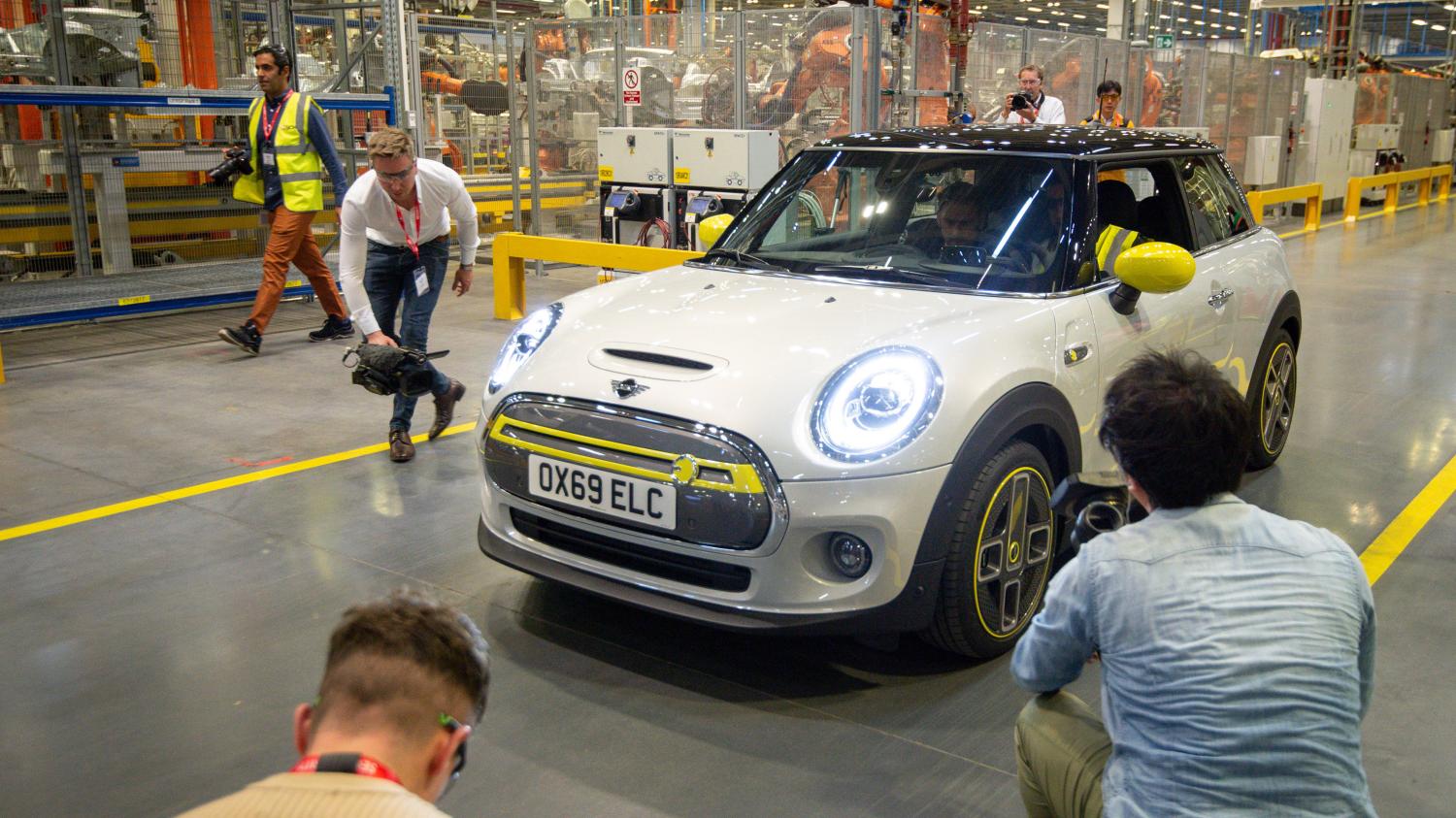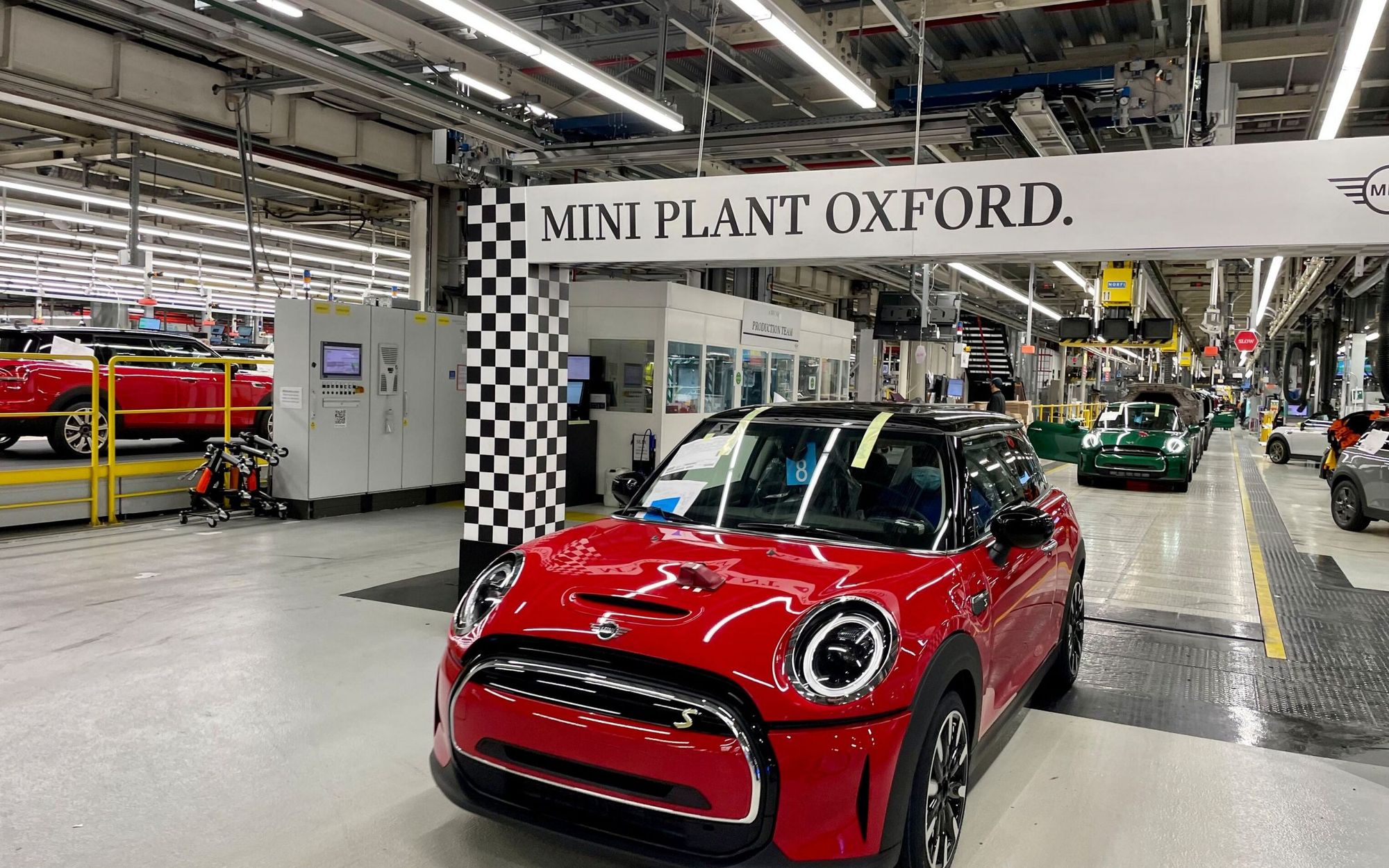BMW to shift production of electric Minis from Britain to China
BMW is set to phase out all UK production of the award-winning electric Mini and move it to China, dealing a serious blow to hopes the UK could be a global hub for manufacturing zero-emission vehicles .

BMW is set to phase out all UK production of the award-winning electric Mini and move it to China, dealing a serious blow to hopes the UK could be a global hub for manufacturing zero-emission vehicles .
BMW makes 40,000 electric Minis a year at its factory in Cowley, on the outskirts of Oxford. Production will end next year as part of plans to revamp the automaker's lineup from 2024.
It's another blow to the UK's claim to be a world leader in electric car manufacturing after Honda decided to leave the UK shortly after the decision to leave the European Union in 2016 The Japanese carmaker has decided to end its plan to manufacture electric cars for the US and European market at its Swindon plant, bringing production back to Japan and closing the plant with the loss of more than 3,000 jobs.
BMW's move comes amid reports that Britain's only proposed major battery plant, built by Britishvolt in north-east England, will go bankrupt if it does not secure a $200 bailout. million pounds.
Just a year ago, at the Cop26 climate summit in Glasgow, then-Prime Minister Boris Johnson pledged to fund a 'billion-pound electric car revolution' in Britain "which will create hundreds of thousands of jobs". His predecessor, Theresa May, wanted Britain to become the "world leader" in electric vehicle manufacturing and made it one of the "pillars" of her short-lived industrial strategy.

These commitments - and the seven-year model cycles typically used by automakers - suggest the Oxford plant won't be assembling new electric vehicles for the next decade.
The historic Cowley plant has been the subject of speculation that BMW is looking to sell the plant to Great Wall, which has made no secret that its strong sales push in the European electric market will eventually see it seek its own facilities production in Europe.
Stefanie Wurst, Mini's new boss, denied this, saying: "Oxford will always be Mini's homeland." She said the decision to end Mini electric assembly in the UK was unrelated to post-Brexit and cross-border supply shortages. the EU or the lack of a gigafactory nearby, but because the Cowley factory was operating inefficiently as it had to produce electric and petrol cars on the same line.
She said that if electric Minis were built again in the UK, it would be on an assembly line platform developed by Great Wall and the existing Cowley lines would be removed as part of a major overhaul of the car. 'factory.
A spokesman for Commerce Secretary Jacob Rees-Mogg declined to comment on BMW's announcement.
As well as the electric Mini currently being built in Oxford and being moved to China, BMW's joint venture with Great Wall Motor will also produce the next generation of the zero-emission Mini Aceman. And a new electric version of Mini's biggest model, the Countryman, will, BMW has decided, be manufactured at its Leipzig factory.
The Oxford plant is expected to continue assembling three- and five-door petrol Minis and convertibles for export to markets including the United States, Japan and the Middle East, with BMW confirming that it won't stop producing gas-powered Minis until the 2030s.
“Oxford is not geared towards electric vehicles,” she said. "It needs renovation and investment." When asked when the Electric Minis would return to Oxford, she replied: "There is no date."
A Great Wall spokesperson confirmed that the possibility of producing its own vehicles at Cowley had been the subject of "internal discussions".
Wurst also dismissed suggestions that British consumers might refuse to buy a Chinese-made Mini, saying she "sees no reason" because British motorists are already buying Chinese-made BMW models.
